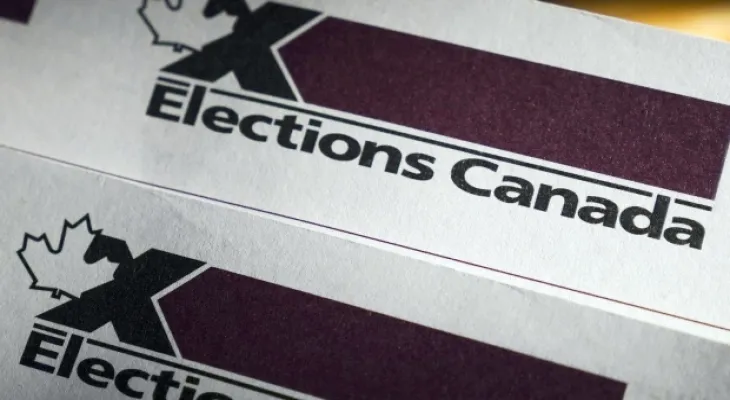Search here
Newspaper
Search here

Arab Canada News
News

Published: July 19, 2024
The Canadian Elections Agency suggests potential changes to protect the political nomination process from foreign interference, including preventing non-citizens from assisting in selecting candidates, requiring parties to publish nomination rules, and banning practices such as voting multiple times.
The Federal Elections Agency outlines the proposed steps in a discussion guide aimed at assisting Chief Electoral Officer Stéphane Perrault in drafting final recommendations to be submitted later this year to an inquiry into foreign interference.
The discussion guide states: "We recognize that some changes may pose a burden on political entities or affect internal policies."
We believe the gain is important: a nomination process that voters trust and fewer opportunities for violations that lead Canadians to question the legitimacy of elected Members of Parliament.
Canadian media used the Access to Information Act to obtain the guide and a related briefing note dated May 30 to Perrault.
The guide was prepared for a scheduled meeting in June of the Advisory Committee on Political Parties, which is a forum for registered parties to meet with the Chief Electoral Officer regarding the conduct of elections, the administration of the Canada Elections Act, and issues related to political financing.
It notes that at the annual general meeting of the committee last September, there was "little desire for changes" to the regulation of the nomination process.
However, in early May, an interim report from the federal inquiry into foreign interference, led by Justice Marie-Josée Hogue, identified nomination contests as a potential gateway for interference.
In this context, the guide states that the Chief Electoral Officer "is committed to exploring ways to enhance transparency and security in nomination contests."
A report released in early last month by the National Security and Intelligence Committee of Parliamentarians expressed concern about how easily foreign actors could exploit loopholes and vulnerabilities to support preferred candidates.
The report stated: "This is a critical gap, as a number of voting processes in Canada are considered 'safe seats' for one party or another, so a successful nomination could amount to electing the candidate."
The briefing note addressed to Perrault indicates that the Canada Elections Act currently provides "limited regulation" of federal nomination races and competitors.
For example, only candidates who accept $1,000 in contributions or incur $1,000 in expenses are required to submit a financial return. The Canadian Elections Agency has no means to verify that campaigns are below the threshold.
Additionally, the law does not include specific obligations regarding nominations, voting, counting, or reporting results beyond the identity of the successful candidate.
The discussion guide states that the "initial discussion ideas" are divided into two categories - enhancing the nomination voting process and improving the transparency of political financing.
The main change requires that voters in nomination contests be Canadian citizens, similar to the eligibility requirement for elections. The guide states: "Non-citizens may be more vulnerable to intimidation by a foreign state."
Allowing access to current voter records could assist in verifying eligibility.
There is an alternative proposal that would restrict voting in nomination contests to citizens or permanent residents.
Other potential recommendations include the following:
— Requiring parties to publish the rules of the nomination contest, including who can be a contestant, who can vote, voter identification requirements, the voting process, and how to contest the outcome;
— Requiring parties to publish results of the completed voting, such as the number of votes cast and the distribution of votes;
— Explicitly banning practices such as urging an ineligible person to vote, intimidation to influence someone to vote, offering or accepting bribes related to voting, and casting multiple votes;
— Requiring all nomination competitors to submit a financial declaration;
— And banning bulk purchase of party memberships or using campaign funds for this purpose.
The guide emphasizes that parties will still have the option to select a candidate without holding a nomination contest. "The recommendations will only apply when a contest is held."
The Canadian Elections Agency did not immediately respond to questions regarding the status of the consultations and plans to submit them to the federal inquiry.
The briefing note submitted to Perrault suggests a legal amendment requiring parties to have a set of publicly available rules for nomination contests. The Chief Electoral Officer of Canada could have an oversight role, perhaps imposing fines for non-compliance.
Another option is to "leave it to parties for self-regulation," which currently applies to party privacy policies.
The central question is whether the Canadian Elections Agency will regulate nomination contests with rules similar to those governing federal elections, addressing issues such as election workers, ballot identification, and counting.
The briefing note stated: "It is clear that this would be a massive undertaking for the agency and not a preferred option." "Such an approach is likely to be strongly opposed by both parties as well."
Comments